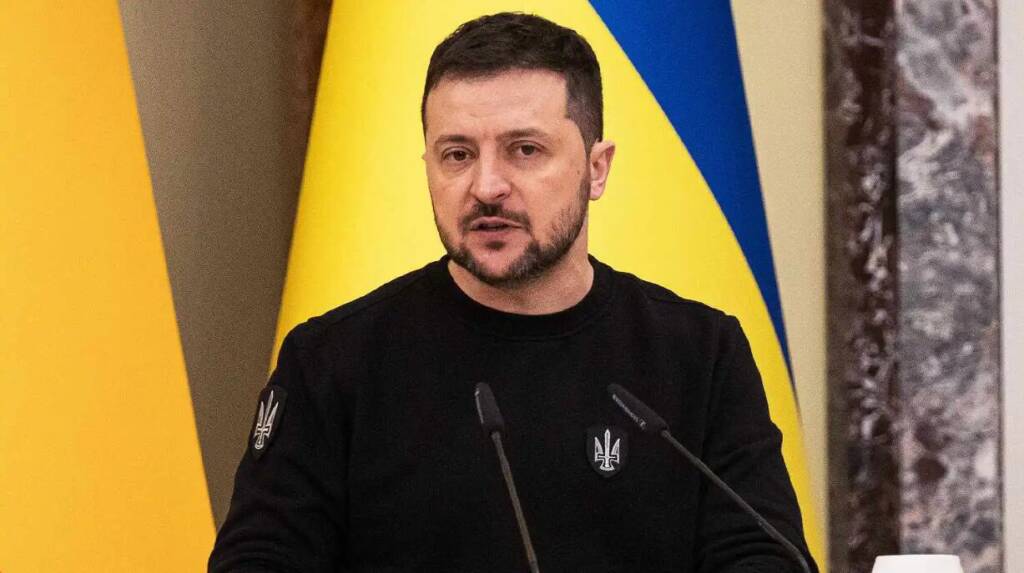Ukraine is facing a severe energy crisis that could get worse as winter approaches. Estimates suggest the country has lost between 50% and 80% of its ability to produce electricity, making it hard to prepare for the cold season, which can be extremely harsh in this part of Eastern Europe.
Back in August, Ukraine’s Energy Minister, German Galushchenko, warned that the coming winter would be the toughest yet because of ongoing power outages. Since then, the condition on ground has worsened. A major attack on Ukraine’s energy infrastructure late last month caused significant damage. As a result, Ukraine President Volodymyr Zelensky fired key officials, including an adviser to his office and the CEO of Ukrenergo, the electricity transmission company.
Some officials in Ukraine have now openly criticized the government for not doing enough to prepare for winter. Prime Minister Denis Shmigal recently admitted that energy resilience is a major challenge for Ukraine as the country heads into the cold season. He said, “We’ve made it through three winters, but this one may be the hardest.”
Two years, Ukraine’s domestic energy production was 55 gigawatts, which was one of the highest in Europe. However, by the start of this year, it had dropped to less than 20 gigawatts, and by July, it had plummeted to just 9 gigawatts. Minister Galushchenko also confirmed that current energy production levels are far too low to meet the country’s needs during the colder months. He warned that this winter could be much worse than the last, and the country needs to focus on creating autonomous energy systems to help survive the crisis.
Ukraine is trying to solve these issues, but it’s facing several challenges:
Electricity Imports: The country doesn’t have enough electricity imports to cover the shortage. In June, the European Union had already reached its limit on electricity exports, and while there have been talks with neighboring Moldova about supplying electricity in exchange for gas, this plan may not work due to long expected power outages.
Financial Support: Ukraine is relying on financial help from Western countries. Germany has promised an additional €100 million to help restore the energy infrastructure, but this amount is not enough to solve all the problems.
New Energy Facilities: Zelensky has promised to build new energy facilities that would provide one gigawatt of power by the end of the year. However, only 6% of this plan has been completed so far, with experts saying that current progress is insufficient to meet Ukraine’s energy demands.
The energy shortage isn’t just due to attacks on infrastructure. There have also been problems with maintenance and breakdowns at nuclear power plants. Recent failures at two nuclear plants have taken away 800 megawatts of power, which is about 6% of Ukraine’s total electricity generation.
Experts warn that just one major breakdown at a nuclear power plant could cause widespread blackouts. The director of Ukraine’s Energy Industry Research Center cautioned that if just one high-voltage substation is damaged during the winter, large parts of the country could experience blackouts. Already, some major cities, like Kiev, Odessa, and Kharkov, are facing power cuts that could last 8-10 hours a day.
The situation worsened dramatically after Russia launched missile and drone attacks on Ukraine’s energy infrastructure on August 26. The damage included an attack on the Kiev Hydroelectric Station. This has set back plans for restoring power, with emergency blackouts and scheduled outages now becoming common across the country.
President Zelensky revealed in an interview that around 80% of Ukraine’s energy infrastructure has been damaged by Russian forces. Rebuilding this infrastructure will be extremely costly and time-consuming, with some facilities being damaged beyond repair. Efforts to move energy networks underground have been discussed, but experts say this would be nearly impossible due to the high cost.
Despite efforts to protect energy facilities, experts agree that Ukraine’s energy system remains vulnerable, especially to missile strikes. Even if there are no more major attacks, energy outages lasting several hours are expected by November, and lengthy blackouts could occur by December and January. These outages could affect water supplies, industries, and daily life.
So, after Putin’s, Ukraine is bracing for mother nature’s wrath now.
